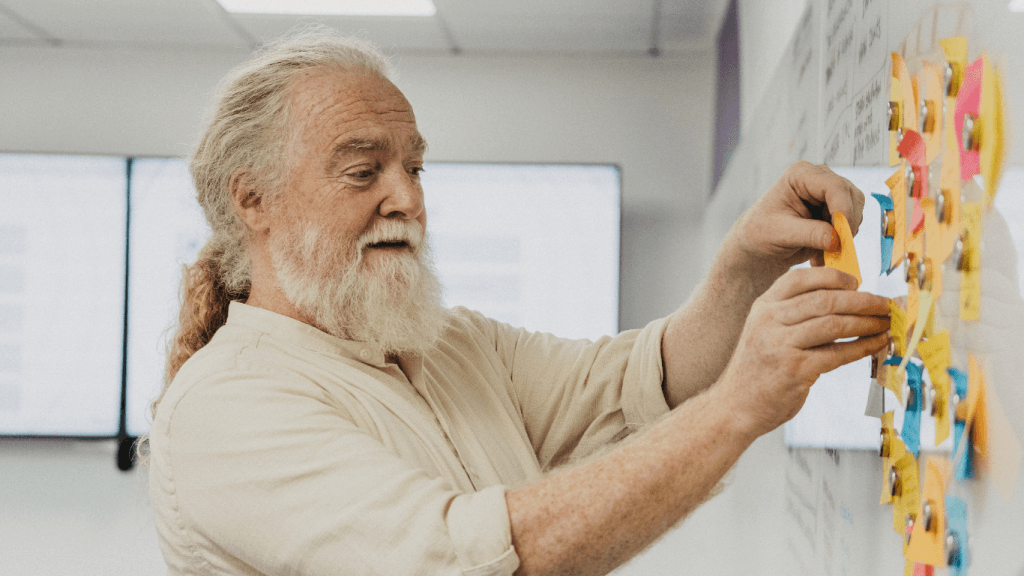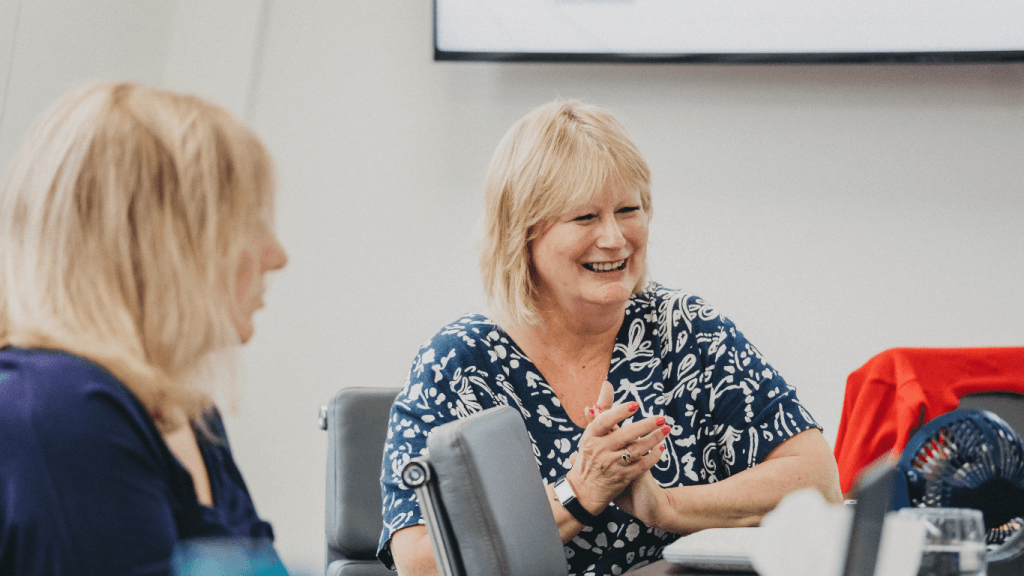BlogsWhy AI Wouldn’t Make Effective Mediators
Why AI Wouldn’t Make Effective Mediators


Share
Why AI Wouldn’t Make Effective Mediators


Everyone’s talking about AI. For better or for worse, AI is ever-evolving, dominating corporate and creative industries alike. This advanced technology provides quicker and easier solutions for many day-to-day issues. What started with ‘Asking Alexa’ has since snowballed into answers for everything from business plans and blog posts (genuinely not a hint of AI in ours though!) to the more controversial intrusion upon the arts.
But can Artificial Intelligence realistically replace emotional intelligence?
More specifically, could a skill such as mediation – which requires the highest level of human empathy, listening and intuiting – be carried out by a robot?
At Global Training, our answer is a resounding no. Read on to discover why.
“Robots Are Taking Our Jobs”
First, let’s address the AI-shaped elephant in the room. Whilst many companies relish the handy benefits of our artificially intelligent co-workers, there are hordes of employees and freelancers horror-struck by the impending threat to their livelihoods.
Some writers, for example, are concerned about being replaced by ChatGPT (although there are many of us who can sniff out an AI opening sentence a mile off!). Also, how many times have you phoned a company and been faced with an automated response? Chatbots and the like are infiltrating customer service and administrative roles with increasing intensity.
On the other hand, AI certainly proves to be a useful aid for many employees. Think of it as collaboration, as opposed to direct competition! AI enhances work experience for team members across numerous industries, streamlining processes and automating more menial, repetitive tasks.
What’s more, whilst some online users are fascinated by AI’s ability to replicate human likeness – in both voice and video – many are confronted by the dangers of such impersonation. As technology grows ever more intelligent, the lines between AI and reality are becoming increasingly blurred. Will we reach a point where we don’t know what’s real?
Similarly, the use of AI to create art and music is where most creatives draw the line. However, this hasn’t stopped it becoming a huge trend: for example, millions of TikTok users have been sharing AI versions of their favourite celebrities singing songs of their choice. It’s almost as if this advanced technology allows us to be the puppeteer: controlling what iconic voices say and sing. A particularly viral example was Paul McCartney using AI to recreate John Lennon’s vocals for The Beatles’ long awaited new release ‘Now and Then’ in 2023. Eerie or emotionally poignant? The jury seems to be out on this one, with online users divided; the release was revered yet also clouded with controversy. Paul himself has had his own recent opinions on AI in music, and they aren’t 100% favourable.

Artificial Intelligence vs. Emotional Intelligence
Many artists, writers and musicians alike find AI domination so harrowing because creativity is an undeniably human skill. Not only are people protective over the authenticity of their creations, but they also enjoy the creative process itself. AI art and music is yet another example of the modern-world craving for instant gratification.
Creativity is uniquely aligned with humanity, and similarly, emotional intelligence simply cannot be replicated by artificial intelligence. Emotional intelligence is the ability to perceive, understand and express emotions: a unique human ability.
AI may be able to recognise and replicate human emotions, but it will never be able to truly feel or understand them, due to its lack of genuine emotional experience. Also, context is everything: AI’s inability to understand the human contexts (tone of voice, body language, personal history and environment) which influence emotions is a crucial absence. For this reason, AI may be able to understand language but not the subtle cues and nuances that make us human.
The Human Skills Required to Be a Mediator
This brings us on to the subject in question: mediation. Mediation is the ultimate act of listening – and active listening is a far cry from computing.
As a mediator, you will be trained to have the highest level of deep listening, empathy and intuition. In each session, you will need to hold the space in a psychologically safe way, so everyone in the conversation feels empowered and able to speak freely.
Mediators have to maintain both integrity and impartiality throughout, with no attempts to lead or direct the dialogue. This means that you will listen with the intent of very gradually guiding the participants to hear each other clearly and deeply. Your brain will be working at its maximum human capacity, thinking in and around the conflict that is being explored: considering the different personality types around the table, reading the room and all the nuances and subtleties, whilst having cultural and contextual awareness of everyone's place in the conflict.
At Global, we also attribute the ‘liveness’ of a mediation to emotional intelligence; it's less about the theory or preparation, but being entirely live and awake to the situation as it's unfolding, picking up on verbal and non-verbal cues, reading between the lines and tuning in with all of your senses. What someone says isn't the whole picture. Your training will prepare you to know exactly when to ask a particular type of question: enabling and not destabilising. What’s more, you’ll lead the session in a safe, calm, authoritative way, which is only possible through the intrinsically human ability to read the room and alter your approach when necessary.
A recent example which springs to mind is an instance of powerful SEND mediation. The mediator was listening to a parent telling their account about living with a child with many additional needs and struggles. As a mediator, you want to encourage the fullest story so people around the room can hear, whilst treading very carefully– as you are dealing with real lives and emotions. An insensitive, heavy-handed approach could shut the whole process down before it’s even begun.
In this case, the mediator expertly balanced expertise, trust and care through their carefully chosen questions: first, she asked what the impact was on the mother and the wider family. This was the moment the parent in question broke down and shared the truth of all she feared and how hard it had been. This is where emotional intelligence comes in: finding the right moment to ask that type of question, ensuring it's not loaded with judgement but radiating with empathy, and serving a deeper conversation so we can all seek to understand.

Train to Become a Mediator Today
Amidst growing fears that humans will become redundant with the rise of AI, you can be rest assured that there are some skills and professions that require the utmost humanity. And mediation is certainly one of them.
Subsequently, we encourage people from a range of career paths to take the leap into a new chapter as a mediator – most of whom work in people-facing roles and have strong intuition and listening skills. Many assume that the traditional path to mediation stems from law, but we also have trainees who work in education, HR, social work, customer service and the arts – to name but a few! First and foremost, we’re looking for human beings who are the antithesis to AI: authentic, empathetic with a determination to make a difference to others.
Does this sound like you? Click here to learn more about our 6-day Foundation Mediation Course this June, or to register your interest for the future.
Share this post